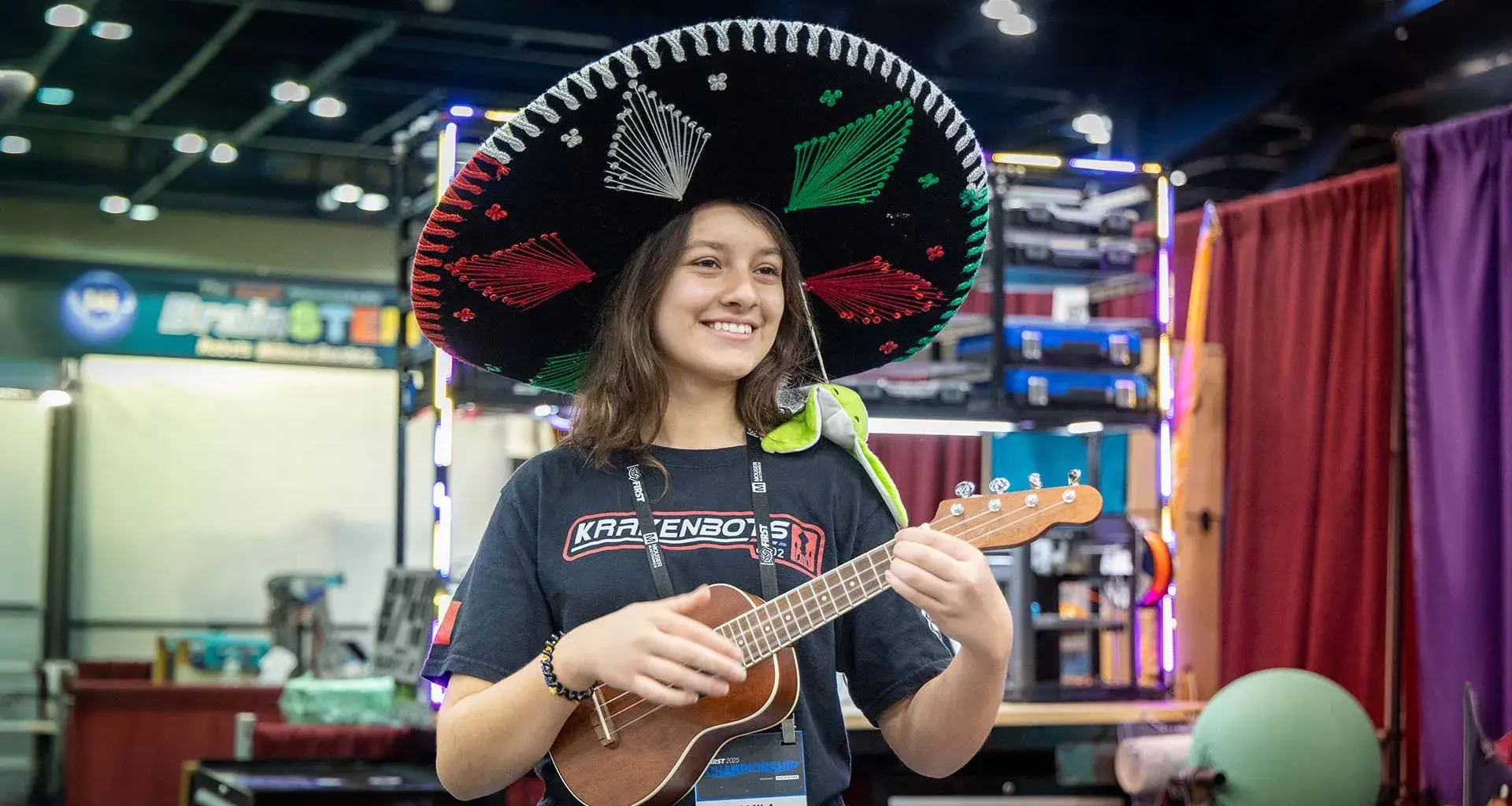At the 2025 FIRST Robotics World Championship in Houston, a Mexican team is pushing its robot in a cart. Among its cables, tools, and metal parts, it also carries a ukulele, something which stands out unexpectedly, out of place in its technological surroundings.
This belongs to Camila Flores, a mariachi from the Mexican team Stingbots who, amid the intensity of the competition, has taken the time to offer serenades, cheering on her team and other participants.
In the competition, Camila confidently masters technical topics: she explains the robot’s wiring, identifies complex components, and answers questions without hesitation in front of international judges.
Outside the pits, she’s even more surprising: she sings and plays as if she’s been on stage for years, although her relationship with music is relatively new. For years, she was so embarrassed to sing that she would hide under the table so no one would hear her.
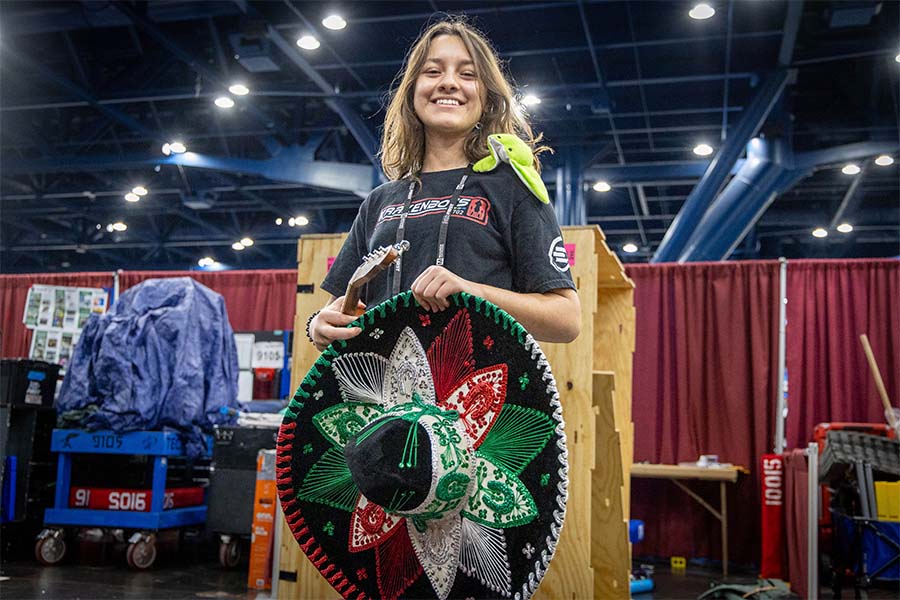
The electronics mariachi at the Robotics World Championship
Camila is part of the electronics department of the Stingbots robotics team at PrepaTec Santa Anita, and this is her first world championship.
At 16, she hasn’t only learned to answer technical questions in front of international judges but has also managed to carve out a very unique niche in the competition: music.
“People are surprised. They don’t expect someone to take out a ukulele and start singing in the midst of so much technology,” she says.
Camila decided to bring a ukulele because: “Sometimes, you need a break from so many tests and problems with the robot. That’s what the ukulele is for me. It helps me calm down, and if it helps someone else relax, even better.”
While there isn’t always time to play during the event, she tries to take advantage of any free time to get her instrument out, at the hotel, between matches, or even while waiting in the pits.
“We were hoping to be able to go around serenading more, but the team’s schedule didn’t allow for that much. We’ve still found time to sing with other teams and de-stress with some tunes,” she says.
And so, she’s had unexpected moments: a song shared with the 201 team at the hotel, a round of Cielito Lindo in front of curious judges, or simply accompanying her classmates while they work.
Next year she hopes to give more serenades, which was her original plan.
“People are surprised. They don’t expect someone to take out a ukulele and start singing in the midst of so much technology."
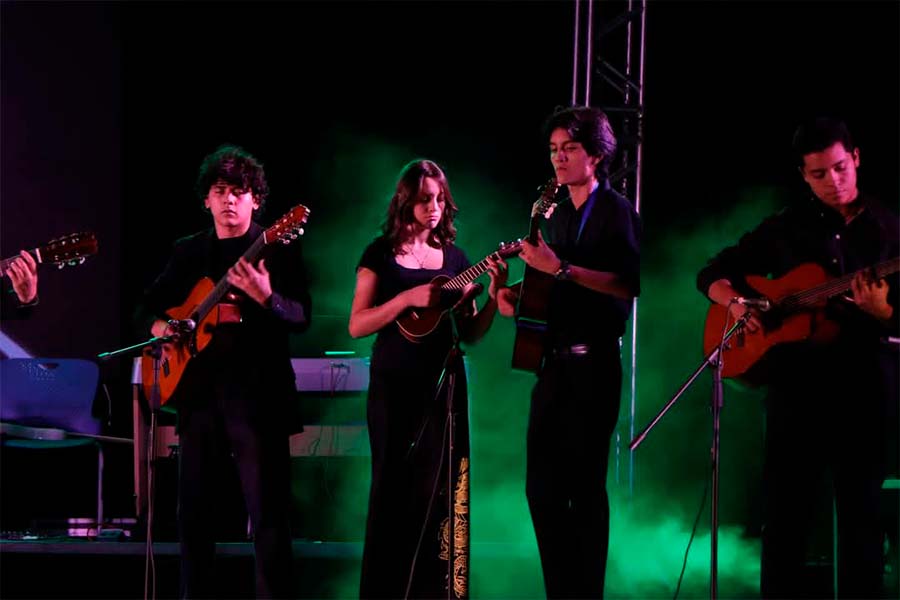
Music: a recent passion
Ever since she started at PrepaTec, her life has become a dance between science and art. Although she was admitted through a STEM scholarship (for Science, Technology, Engineering, and Mathematics), music joined her along the way.
“In high school, I saw that there was a student mariachi group, and I joined. I saw that I could manage between the workshop and music, and I learned to play more instruments slowly but surely. I realized it was something that really made me happy,” she recalls.
In addition to the ukulele, Camila plays the electric bass, the guitar, and she also sings.
Her first exposure to music was the bass, an instrument she discovered during the pandemic thanks to videos of bassists she saw on TikTok.
Fascinated by the sound, she decided to buy one with her own savings and learn at a nearby school.
She learned the rest thanks to her music teacher and friends from the same student group, who are also part of the robotics team.
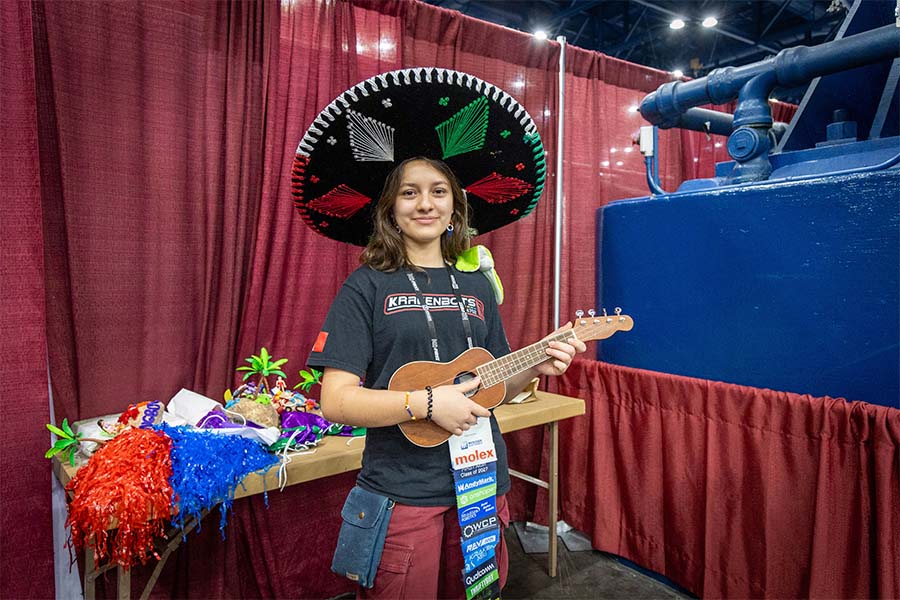
The girl who would sing under the table
Long before she was a mariachi at Houston, when she was still in elementary school, Camila didn’t dare sing in front of anyone.
“I would get under the table to sing because no-one could see or hear me there.”
Although there were always instruments in her house, her father played at least six, she was embarrassed to play anything in front of her family.
“My dad has videos of me singing in secret.”
The change came slowly. First came bass, which she decided to learn after watching videos of bassists on TikTok.
“I asked my parents how much one cost. They told me that if I wanted one, I could buy it with my own money. So, I saved up and bought one.”
Then came the guitar, the ukulele, and the mariachi band. In that student group, she finally found a space to be heard.
Over time, Camila learned not only instruments but also confidence.
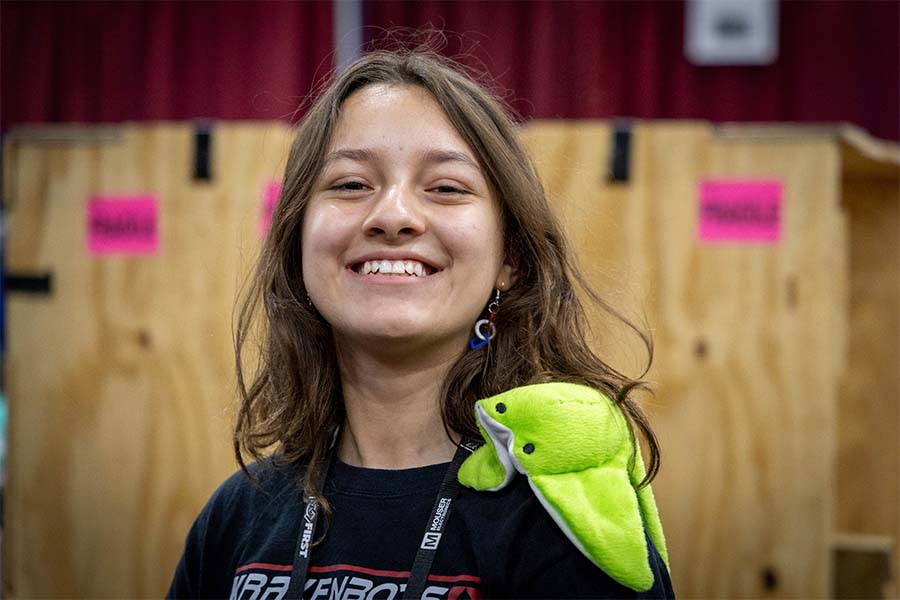
Improving the world through technology and security
Camila knows that she wants to change the world, or at least improve it, and that her path probably lies in engineering.
“I’d like to study nuclear or aerospace engineering. I love Russian and American space infrastructure. I want to learn there and bring that back to Mexico.”
She’s already studying German as part of PrepaTec’s multicultural program. Her ideal plan is to study in Munich or, if circumstances allow, in Russia.
“I’d also like Stanford or MIT, but Russia is a country that fascinates me from what I’ve read, what I see in documentaries and podcasts, and I’m interested in its technological vision.
“I’d like to change things in my country, especially in the technology and security industries. Mexico’s highways, for example, are poorly planned. I want to make those changes.”
In fact, before mastering electronics in her robotics team, Camila was already paving her way in the world of technology.
While at middle school, she participated in Technovation Girls, an international competition in which girls program an app, develop a business model, and present it to judges.
Camila reached the international stage twice.
“I competed and reached the finals in San Francisco.” That experience was a turning point for her. “That’s where I said: ‘This is technology. This is what I want to do.’”
Thanks to that experience, she obtained a STEM scholarship to study at PrepaTec.
“From then on, robotics became my priority, although I later discovered I could also combine it with music.”
Now 16, Camila has already participated in a robotics world championship, performing serenades and explaining electronic systems to foreign judges.
But she admits: “I still feel embarrassed singing in front of my parents.”
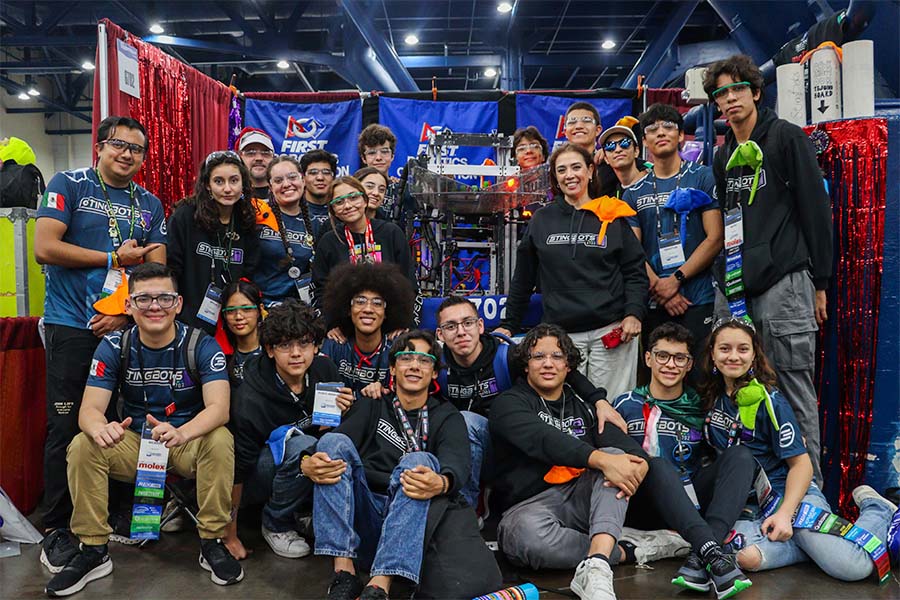
2025 FIRST Robotics World Championship
The FIRST Robotics Competition (for ages 14-18) combines the excitement of sport with the rigor of science and technology. Working with adult mentors, students design, build, and program their robots to meet the season’s challenge.
This is one of the largest robotics tournaments in the world, with 600 teams competing in rotating alliances within eight divisions over several rounds to earn ranking points and advance to the playoffs.
The divisions included: Archimedes, Curie, Daly, Galileo, Hopper, Johnson, Milstein, and Newton.
FIRST (For Inspiration and Recognition of Science and Technology), was founded in 1989 by inventor Dean Kamen.
It’s a global organization that prepares young people for the future through inclusive, team-based robotics programs.
The venue for the event was the George R. Brown Convention Center in Houston, Texas.
YOU’LL ALSO WANT TO READ:

